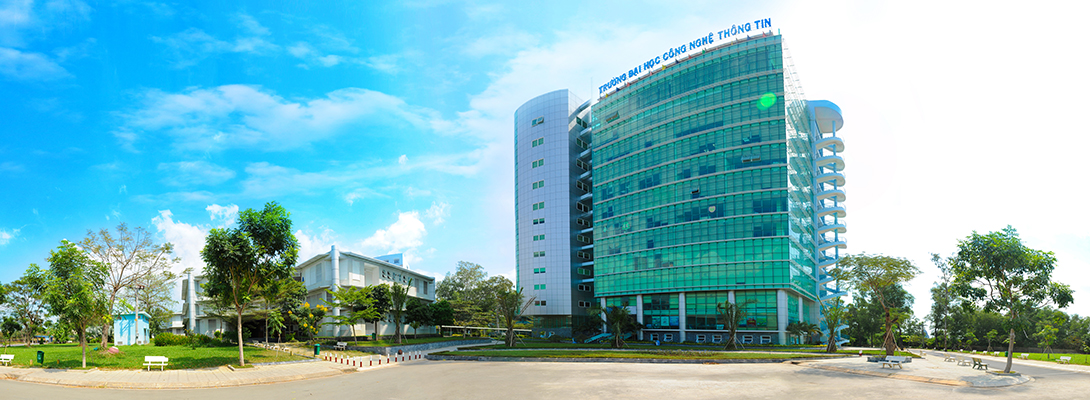Master of Computer Science
Training Program Overview
- Program name: Postgraduate training program
- Education level: Master
- Education: Computer Science
- Training code: 60.48.01.01
- Training period: 02 years
1. Goal of Master Training Program
- Students who pursue a master’s degree benefit from increased theoretical knowledge, extensive practical experience, independence, creativity, and the capacity to recognize and address issues specific to their filed of study. This training program will guarantee the fundamental understanding of environmental science and promote the strength of the specialization of the university’s environmental science majors, including: Knowledge technology and Machine learning; Natural language processing; and Computer vision.
- Students are expected to meet the high demands of society through their background knowledge, in-depth understanding, the ability to apply achievements in contemporary Computer science. These students are also expected to assume management leadership and actively participate in the advancement of science and technology. This training program apply both research-oriented and application-oriented approaches:
- Research-oriented training program: This approach provides students an in-depth knowledge, specialization, and appropriate scientific research techniques. This allow these students the motivation to conduct their own research: forming ideas, discovering and testing new ideas; engaging in the position of a researcher, teacher or consultant, policy-making; the ability to take part in doctoral-level training program.
- Application-oriented training program:This approach assists students in improving their profession knowledge and skills for work-related activities; as well as their ability to work independently and creatively, design products, apply research findings, identify and plan the implementation of complex tasks in work-related activities, and effectively utilize specialized knowledge. specific positions, appropriate to the actual circumstances at agencies, organizations, and economic units; can pick up some extra fundamental skills and research techniques as needed by the doctoral training major to keep taking part in the program.
- Basic knowledge and in-depth expertise are key elements that help create the conditions for students to strengthen their self-research motivation, inspire them to explore more knowledge, and enhance their professional capacity and ability in both research and practical application.
2. TRAINING PROGRAM VIEWPOINTS
- This training program, which uses the credit system, must fulfill the training goals, give students in-depth knowledge of the subject, and prepare them to pursue computer science and technology-related studies or be used skillfully to serve the needs of society or requires specialized knowledge.
- Basic knowledge and in-depth expertise are key elements that help create the conditions for students to strengthen their self-research motivation, inspire them to explore more knowledge, and enhance their professional capacity and ability in both research and practical application.
- Students who major in computer science can integrate internationally and study and research at a higher level.
3. Training Program output STANDARD
Students will acquire the fundamental and in-depth knowledge and skills necessary in a leading learning environment through the graduate program in computer science. The objective is to assist students in finding jobs in a high-tech and scientific field both domestically and abroad after they graduate. Students are also focusing on learning scientific research techniques, encouraging creativity, and continuing their education and research in technologically advanced environments around the world.
3.1 Knowledge base
- Focus on fundamental research areas such as of intelligent systems such as knowledge base, image processing, natural language processing, and human-machine interaction, along with a number of related areas. These are the areas that have received increasing attention from the scientific community for their application in serving humankind.
- Improve knowledge of scientific research methods and foreign languages.
3.2 Skill base
- In addition to mastering practical skills, students also have skills in analyzing, designing, reasoning, and experimenting systematically and scientifically for large problems of high complexity.
- Develop research and creativity skills to solve professional complex problems.
3.3 Qualities and attitudes
- Students have to strictly abide by the law, comply with the regulations in the professions in the field of information technology, respect copyright and intellectual property.
- Actively working for the common interests of the community, and for the development of Vietnam’s information technology.
- Develop self-study and self-improvement attitude.
3.4 Competency
- After graduation, Master in Computer Science will be able to conduct self-research or research at doctoral level, universities and institutes; will be able to participate in projects developing, and managing intelligent systems; will be able to solve highly complex problems; will be able to come up with approach to new problems in IT; and professional communication skill in English.
- Apply contemporary achievements in Computer Science into practical knowledge economy;, as well as assume the position of leadership in the role of developing and contributing to science and technology.
- Broaden their understanding of related fields in the IT industry.
4. TRAINING FRAMEWORK
|
COURSES |
NUMBER OF CREDIT |
NOTE |
||
|
Research-oriented |
Application-oriented |
|||
|
Basic core courses |
Philosophy | 3 | 3 | |
| Mathematics | 4 | 4 | ||
| English | According to output standard | |||
|
Major core courses |
Compulsory | 8 | 8 | |
| Scientific research methodology | 2 | Research-oriented | ||
| Specialization | ≥ 12 | ≥ 12 | ||
| Electives | ≥ 16 | ≥ 23 | ||
| Graduation thesis | 15 | 10 | ||
| Total | ≥ 60 | ≥ 60 | Students can accumulate more than 60 credits. | |

